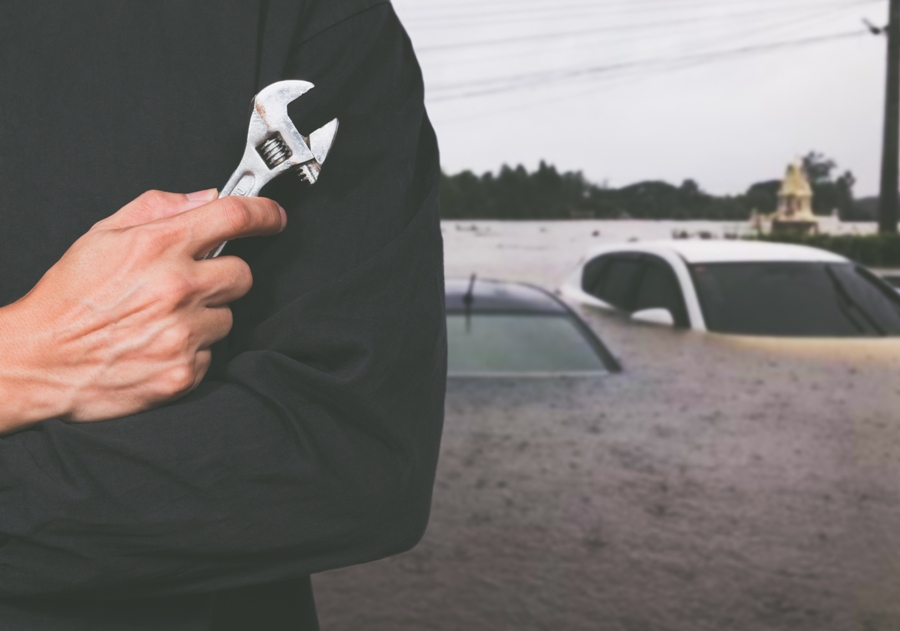Rainstorms that result in floods of biblical proportions are not uncommon in the US. Just imagine the destruction made by Hurricane Harvey in a number of cities in Texas. If flash floods have hit your home chances are your car was submerged in the floodwaters. The big question is, can it still be repaired?
The quick answer is yes. But the real question is, is it worth it? Repairing a flooded car will cost you a lot, and you will have to weigh if you are better off selling it and buying a new car.
Assessing Your Flooded Car
You will need to survey the extent of the damage of your flooded car. Here are the things that you must consider:
- Note the depth of floodwater.
How high the floodwater is or how deep your car was submerged will help you decide if you will have your car fixed or not. If the floodwater reached the dashboard, you might be better off selling your car and getting a new one.
The electronics of modern cars are complex and can be easily damaged by floodwater. If fixed, corrosion can still cause you future problems.
- Consider the type of floodwater.
Saltwater can spell big trouble for your car. Water can get into its every crevice, and when it is saltwater, it leaves deposits wherever it goes. This means corrosion, which can cause rusting and trouble for your car’s electronic and electrical components, and its engine. Freshwater flooded cars have better chances at repair than those that were submerged in saltwater.
- Determine your car’s worth and value before it was flooded.
Your car’s worth before it was submerged in floodwater can help you decide if you should try to have it repaired or not.
Was it an old car? Did it have any operational and functional issues? By knowing these things, you can tell if spending tons of money for repair will be worth it or not.
- How long the car was submerged in deep wat
If the flood lasted for days or weeks, then your car will be in worse situation. The longer it is submerged in flood water, the longer your car’s interior, electronics and powertrain were compromised.
Things to Do After Your Car Floods
- Do not attempt to start your car.
Starting your car, if there is water in the engine, transmission system and the fuel system will only cause further damage.
- Dry out your car quickly.
Dry out your car as soon as possible. Remove the seats, cushions and carpets. Disconnect all electrical connectors and dry them using a hair dryer. Remove all moisture with a vacuum, and use fans to hasten the drying process.
- Check under the hood.
You might need an auto specialist’s or a mechanic’s help for this. It will tell you just how severe the damage to your car is. They can also give you an estimate on the needed repairs.
Check the oil dipstick for the engine and transmission. If there are water droplets at the end of the dipstick, then change the oil and filter. Next, remove the water-damaged cylinders and check for corrosion.
- Call your insurance company.
If your car is covered, call your insurance provider. However, if your coverage is only for liabilities, then you will not get help for the repair or replacement of your car. A comprehensive care plan, however, may provide you assistance for repair or replacement.
Calamities happen all the time. Sometimes, Mother Nature wreaks her havoc when we are least prepared. Call a reputable auto specialist to check your flooded car. He can give you information on the extent of your car’s damage and provide recommendation for its repair or replacement.
Written by the staff at KB Tire & Auto. KB Tire & Auto is the leading expert in auto repair Moberly MO has to offer.



